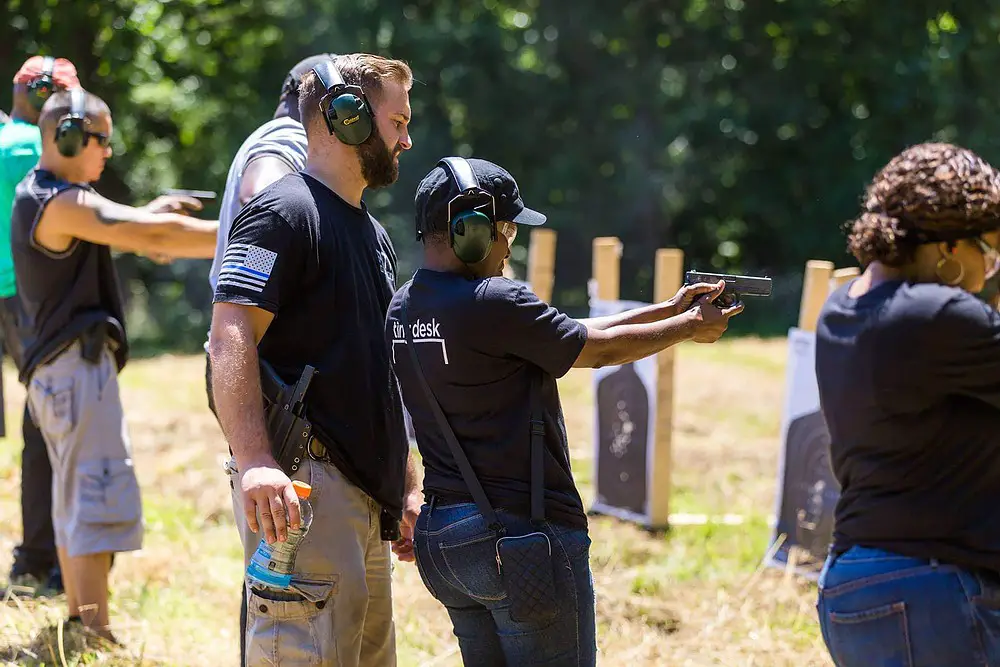Obtaining a concealed carry permit allows individuals to legally carry a concealed firearm for self-defense in many states. However, the laws governing concealed carry can vary significantly from state to state. Understanding the concept of reciprocity agreements is essential for gun owners who wish to carry their firearms across state lines. PTPGun, a trusted firearms training organization, aims to provide valuable guidance on navigating multi-state concealed carry permit reciprocity agreements. In this article, we will explore the fundamentals of reciprocity, offer practical tips, and answer frequently asked questions to help gun owners navigate concealed carry permit reciprocity effectively and legally.
Understanding Concealed Carry Reciprocity:
What is Concealed Carry Reciprocity?
Concealed carry reciprocity refers to the mutual recognition of concealed carry permits between different states. When two or more states have a reciprocity agreement, they recognize each other's concealed carry permits, allowing individuals to legally carry concealed firearms in those states, subject to certain conditions.
Research Reciprocity Agreements:
The first step in navigating concealed carry reciprocity is to research and understand the reciprocity agreements between your home state and the states you plan to visit. Each state has its own specific rules, requirements, and restrictions for recognizing out-of-state concealed carry permits.
Considerations for Reciprocity:
Reciprocity agreements can vary in terms of the types of permits recognized, the conditions for carrying concealed, and any additional requirements. Factors to consider include whether the permit is honored for residents only or non-residents, restrictions on where firearms are allowed, and magazine capacity limits.
Tips for Navigating Concealed Carry Reciprocity:
Check State-Specific Requirements:
Even if a state recognizes your concealed carry permit, you must still comply with its specific laws and regulations. Familiarize yourself with the laws of each state you plan to visit, including restrictions on carrying in certain locations, signage requirements, and duty to inform law enforcement.
Stay Informed:
Laws and reciprocity agreements can change over time. Regularly review the state's official websites, consult with reputable sources, and stay informed about any updates or changes to reciprocity agreements, permit requirements, or restrictions.
Carry Your Permit and Identification:
Always carry your valid concealed carry permit and a valid form of identification when carrying a concealed firearm. These documents are essential for demonstrating compliance with the law and proving your eligibility to carry concealed in states with reciprocity agreements.
Understand Duty to Inform:
Some states have a duty to inform law enforcement requirement, which means you must immediately notify an approaching law enforcement officer that you are carrying a concealed firearm. Familiarize yourself with the duty to inform requirements of each state you visit to avoid any legal complications.
FAQs (Frequently Asked Questions):
Q1. Do all states have reciprocity agreements?
No, not all states have reciprocity agreements. Some states have limited or no reciprocity agreements, which means they may not recognize concealed carry permits from other states. It is crucial to research the reciprocity agreements of the specific states you plan to visit.
Q2. Can I carry my firearm in states without reciprocity agreements?
Carrying a firearm in states without reciprocity agreements generally requires obtaining a non-resident permit from that state or adhering to the specific laws and requirements for carrying firearms in that jurisdiction. Research the laws of each state you plan to visit for guidance on carrying firearms.
Q3. Can reciprocity agreements change over time?
Yes, reciprocity agreements can change as states reassess their policies. It is important to stay updated on any changes to reciprocity agreements, as well as any changes in permit requirements or restrictions.
Q4. Can I carry my firearm in a state with reciprocity if I am a non-resident of that state?
Many states have reciprocity agreements that extend to non-residents who possess a valid concealed carry permit from their home state. However, it is crucial to research the specific requirements and restrictions of each state's reciprocity agreement.
Q5. Can I carry my firearm in states that do not have reciprocity agreements?
Carrying a firearm in states without reciprocity agreements may be possible by obtaining a non-resident permit from that state. However, the laws and requirements can vary, and it is essential to research the specific regulations and consult with legal professionals to ensure compliance.
Conclusion:
Navigating concealed carry permit reciprocity agreements requires thorough research and understanding of the laws and requirements of the states involved. PTPGun, By researching reciprocity agreements, staying informed about changes in laws, adhering to state-specific requirements, and carrying your permit and identification, you can navigate concealed carry permit reciprocity effectively and legally. Remember to prioritize safety, respect local laws, and consult legal professionals if you have any doubts or questions regarding concealed carry in different jurisdictions.
Original Sources: https://wakelet.com/wake/CXSLvCvbmsqjbGB3SsFQR






